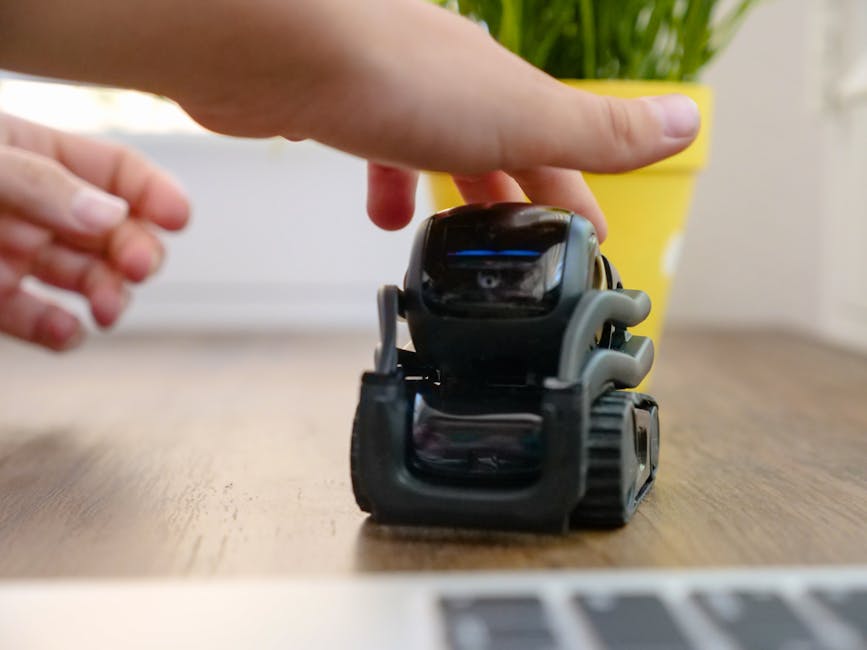No products in the cart.
Apple’s Strategic Acqui-Hire: Enhancing Smart Home Potential with Prompt AI
Apple's acquisition of Prompt AI signals a bold step toward enhancing smart home technology, incorporating advanced AI capabilities for improved user experiences.
Cupertino, California — Apple Inc. has made a strategic move to bolster its smart home product line by acquiring the AI startup Prompt AI. This acquisition, announced on October 11, 2025, comes at a time when the demand for intelligent home automation is surging. With this latest addition, Apple aims to integrate sophisticated AI capabilities into its existing ecosystem, enhancing user experiences and expanding its market reach.
Founded in 2020, Prompt AI has garnered attention for its cutting-edge natural language processing technologies. The startup specializes in developing AI systems that facilitate seamless interactions between users and smart devices. Apple’s acquisition of Prompt AI represents not just a talent grab but also a critical investment in the future of smart home technology.

This move aligns with Apple’s broader strategy to dominate the smart home market. According to a report by Statista, the global smart home market is projected to reach $135 billion by 2025, growing at a compound annual growth rate (CAGR) of 25% from 2020 to 2025. With competitors like Amazon and Google already entrenched in this space, Apple’s acquisition of Prompt AI is a timely effort to enhance its competitive edge.
 News
NewsIncome Tax Refunds Stuck Due to Risk Management: What You Need to Know
Income tax refunds are facing delays due to risk management checks. Here's what you need to know about the situation…
Analysts believe that integrating Prompt AI’s technology could enable Apple to improve the functionality of its HomeKit platform. HomeKit already allows users to control various smart devices through Siri, but the integration of Prompt AI’s advanced algorithms could provide a more intuitive and responsive user experience. This could lead to smarter automations, improved voice recognition, and enhanced contextual understanding.
According to a report by Statista, the global smart home market is projected to reach $135 billion by 2025, growing at a compound annual growth rate (CAGR) of 25% from 2020 to 2025.
Moreover, Apple’s smart home ecosystem has faced challenges in gaining significant market share. Amazon’s Echo and Google’s Nest have dominated the sector with their robust offerings and innovative features. By incorporating Prompt AI’s technology, Apple could potentially attract a wider consumer base seeking more intelligent and versatile home automation solutions.
However, challenges remain. Apple will need to ensure that the integration of Prompt AI’s technology aligns with its stringent privacy and security standards. The tech giant has long positioned itself as a champion of user privacy, which has been a pivotal part of its brand identity. Maintaining this reputation while advancing its AI capabilities will be crucial in retaining consumer trust.
 Artificial Intelligence
Artificial IntelligenceAI Robots: The Future of Manufacturing Automation
AI-enabled robots promise to solve long-standing manufacturing challenges. This article delves into their implications for the industry and workforce.
Read More →Furthermore, industry experts caution that the success of this acquisition will depend on how well Apple can leverage Prompt AI’s technology within its existing product frameworks. It’s not merely about acquiring talent; it’s about effective integration and execution. If successful, this could set a new standard for smart home interfaces, demonstrating Apple’s commitment to innovation.
Looking ahead, the implications of this acquisition extend beyond just Apple. Other tech companies may follow suit, seeking to enhance their smart home offerings through similar strategies. The landscape of home automation is rapidly evolving, with AI playing a central role. Consumers can expect more sophisticated, user-friendly smart home devices in the coming years.
Furthermore, industry experts caution that the success of this acquisition will depend on how well Apple can leverage Prompt AI’s technology within its existing product frameworks.
As Apple continues to refine its approach to the smart home market, the integration of Prompt AI could redefine the user experience. By focusing on intuitive design and advanced AI capabilities, Apple may not only catch up with its competitors but potentially lead the charge in smart home technology. This acquisition marks a significant step in reshaping how we interact with our living spaces, making the promise of smarter homes a tangible reality.
 Self-Help
Self-HelpAssessing Your Role for Future Leadership Potential
Is your current role setting you up for future leadership? Discover how to assess your skills and create opportunities for…
Read More →










